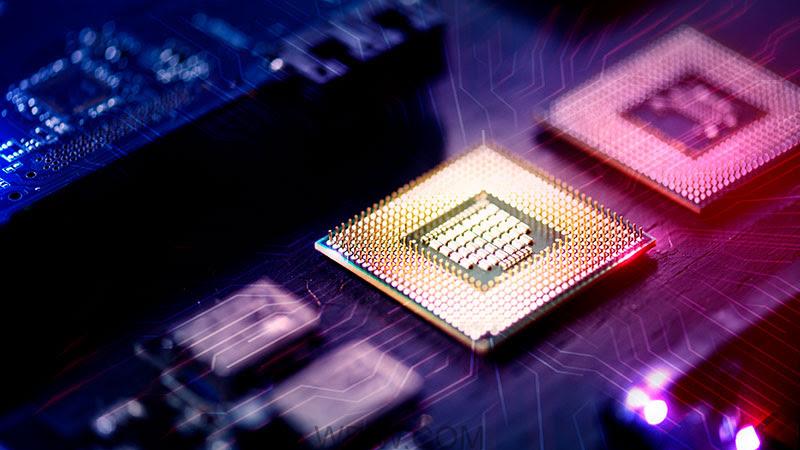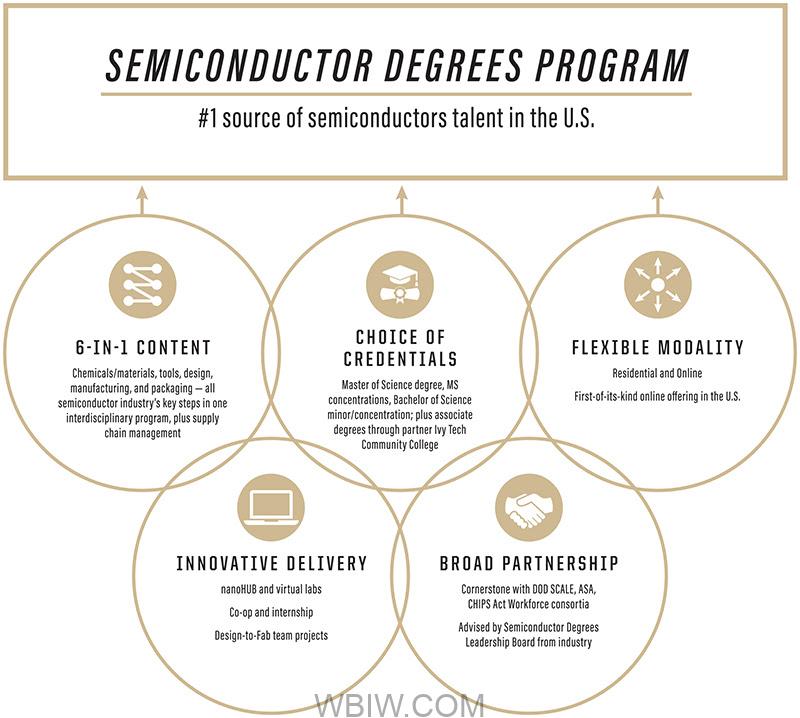
WEST LAFAYETTE — In the next five years, a minimum of 50,000 trained semiconductor engineers will be needed in the United States to meet the overwhelming and rapidly growing demand.

Purdue University has answered that call, becoming the first in the country to launch a comprehensive set of innovative, interdisciplinary degrees and credentials in semiconductors and microelectronics.
Semiconductor Degrees Program (SDP), the suite of innovative Purdue degrees and credentials, will educate both graduate and undergraduate students, enabling a quick ramp-up of skilled talent and creating the next generation of semiconductor workforce to reassert American preeminence in this critical industry.
Unveiled as a plan in September 2021 and officially launched in May 2022, Purdue SDP touts five distinct features that set it apart from other educational programs:

- 6-in-1 content: Chemicals/materials, tools, design, manufacturing, and packaging — all semiconductor industry’s key steps in one interdisciplinary program, plus supply chain management.
- Choice of credentials: Master of Science degree, stackable certificates at the postgraduate level, Bachelor of Science minor/concentration; plus, associate degrees through partner Ivy Tech Community College.
- Flexible modality: Both residential and online programs. First-of-its-kind online offering in the United States dedicated to semiconductors.
- Innovative delivery: Through online learning platform nanoHUB and virtual labs, co-op and internship opportunities, and design-to-fab team projects.
- Broad partnership: Cornerstone with Department of Defense’s SCALE (Scalable Asymmetric Lifecycle Engagement) program, American Semiconductor Academy (ASA), and other Creating Helpful Incentives to Produce Semiconductors (CHIPS) Act workforce consortia. SDP is also advised by a leadership board of industry senior executives as listed below.
“The need to restore self-reliance in the semiconductor industry is both an economic priority and a national security imperative,” Purdue President Mitch Daniels said. “We are proud of Dean Chiang and his colleagues for placing Purdue in a position of national leadership in this all-important endeavor.”

Semiconductor chips are the foundation upon which all modern digital economies are built. As electronic devices have become more complex, so have the intricacies of semiconductors across the supply chain. CEOs of leading semiconductor technology companies (see their testimonials below) have stressed the vitality of bolstering semiconductor education and have publicly appealed to university officials across the country to expand the pool of skilled, credentialed talent to meet their needs.
Details of the Semiconductor Degrees Program
With state-of-the-art facilities such as the Birck Nanotechnology Center and nanoHUB and more than 50 world-leading faculty members whose research expertise spans the entire spectrum of semiconductors and microelectronics, Purdue is poised to be the academic leader in semiconductor education, research, and industry partnerships.
Students will learn the manufacturing and design of chips as well as the entire supply chain, which includes the chemical engineering of processing; the mechanical engineering of tool development; thermal management, packaging, material engineering of new materials for chips and packages; and the industrial engineering of supply chain, logistics and manufacturing optimization. Students will have the freedom to customize their own plans of study to focus on specialized sub-fields such as system-on-chip design, heterogeneous integration, and emerging devices, among others.



